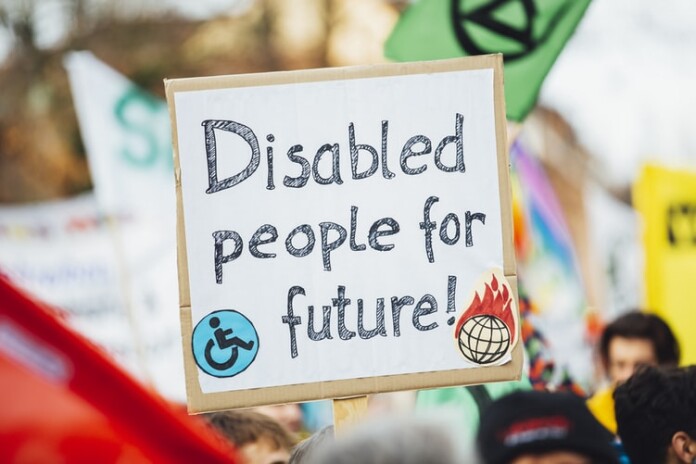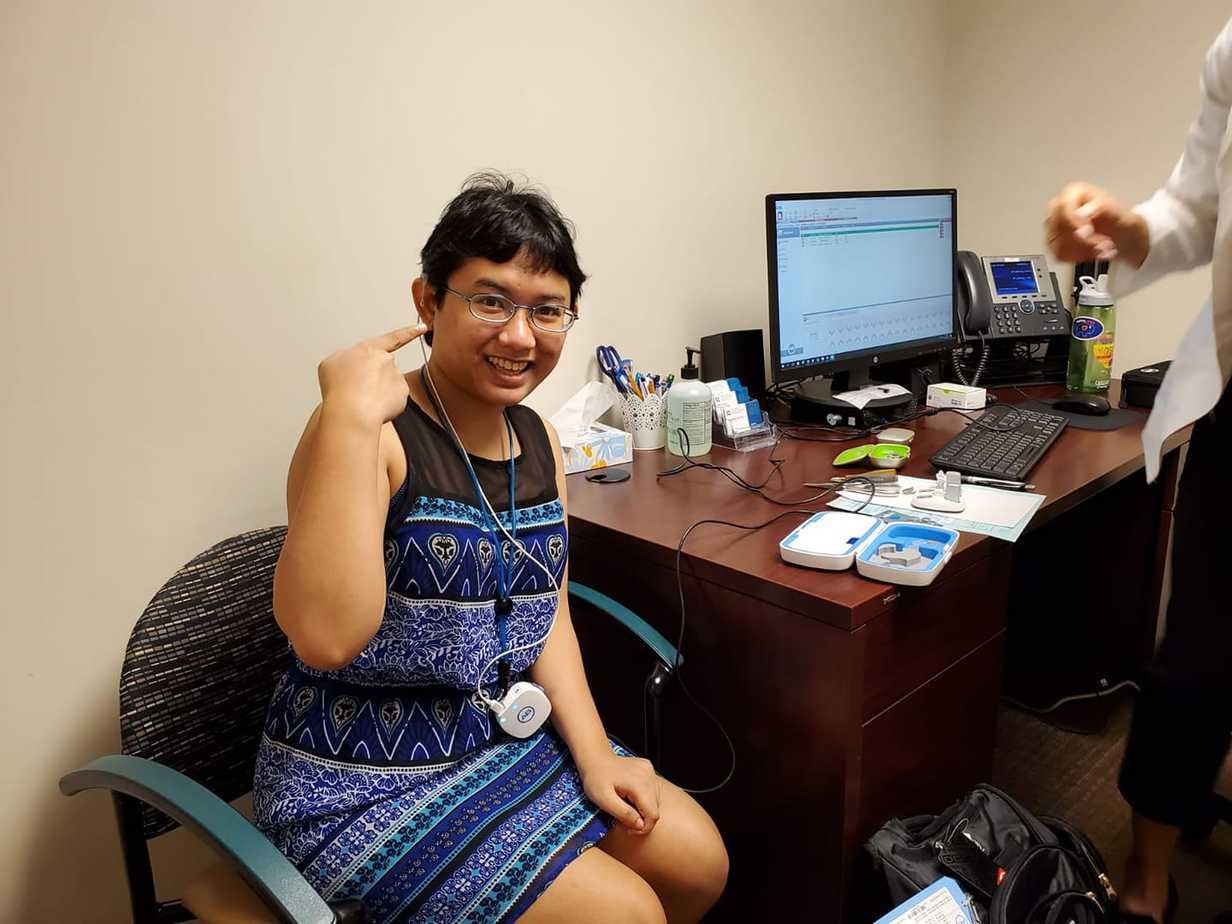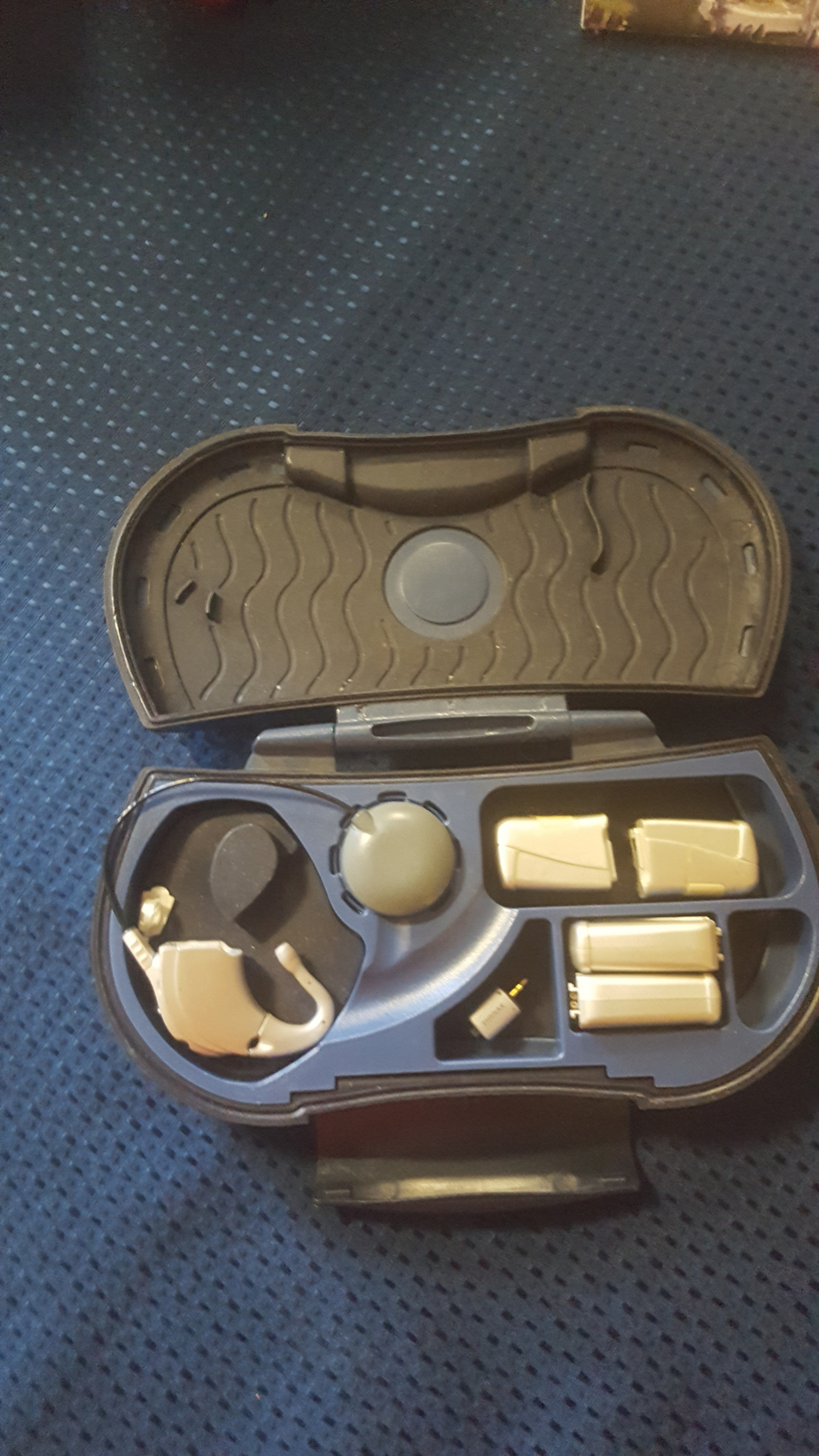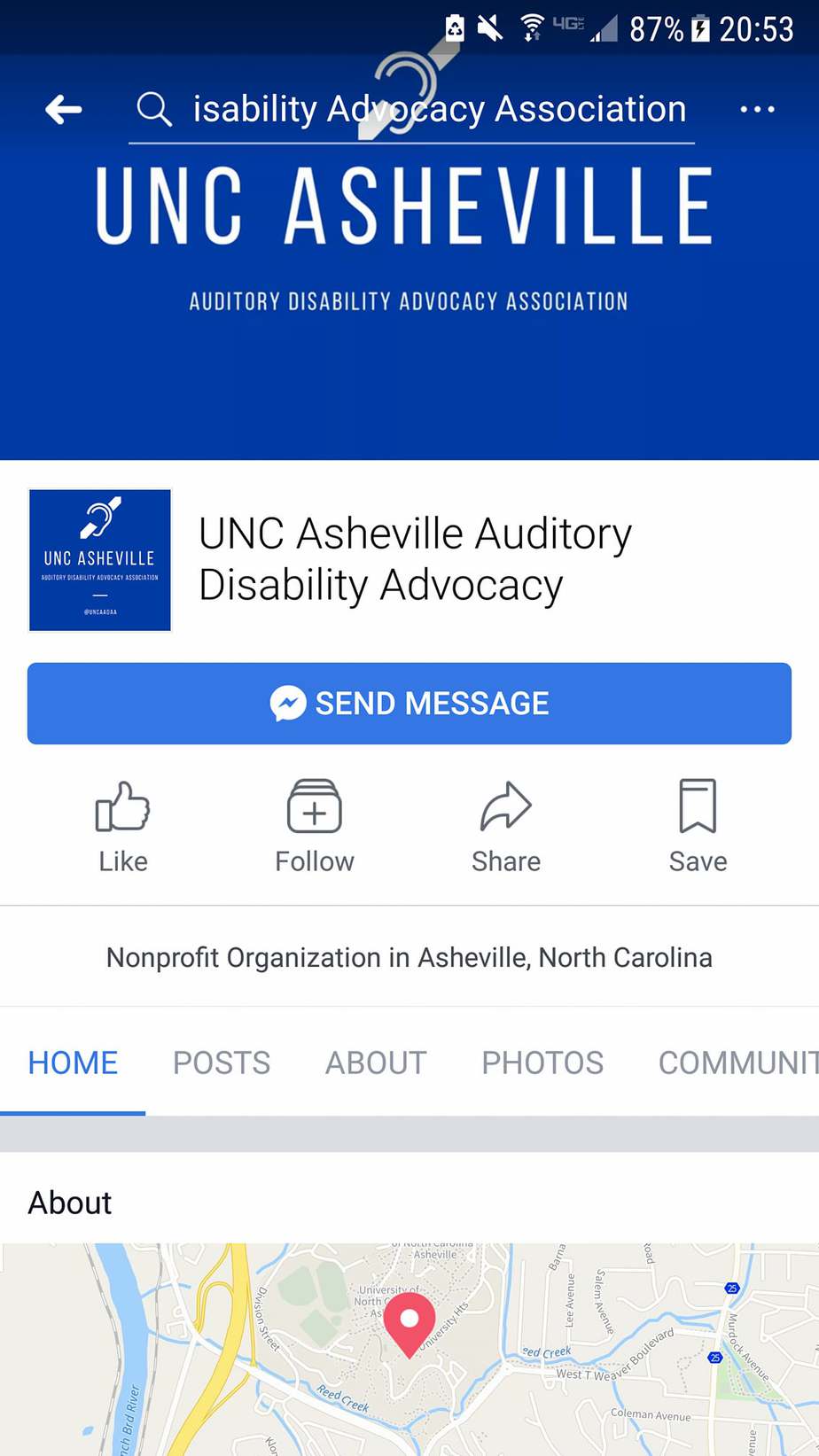
I am someone with a disability. Could I be successful in the States?
The question above was something I asked myself and my parents in 2013 before I decided to study abroad. The answer was yes, of course I would survive, but at that time I was clueless and the thought of disclosing the nature of my disability to my professors and other people in my campus seemed intimidating and stressful. For context, I was diagnosed with profound sensorineural hearing loss on both ears when I was seven, about nineteen years ago. I do have some usable hearing left but, even with the help of my hearing aid and a device called a cochlear implant, I still find it extremely difficult to communicate with others, especially in a large group setting like classroom discussions.
When I was accepted to Hiram College in Ohio, I was excited but also fearful. Thankfully, the International Student Coordinator referred me to the Health, Counseling, and Disability Services department. There, I was told that since I am no longer a child or a minor and am legally an adult, all the decisions I made regarding how the academic institution handles all documents on file about the nature of my disability should remain solely confidential even from my parents, except if I signed a FERPA (Family Educational Rights and Protection Act) waiver. A FERPA waiver would allow my parents and other individuals I trusted to gain permission to see my records in case of emergency but also ensure no other third party could ever have access to my private information without my written consent.

The same department also educated me on ADA (Americans with Disability Act), which is a provision or a law that ensures everyone with disabilities are not going to be on the receiving end of discriminatory treatment. Under ADA, all colleges and universities in the United States are obliged to provide their disabled students reasonable accommodations so that those students can do their best to learn in a safe, supportive, and inclusive environment. Please note that “reasonable accommodations” here does not mean the students are afforded preferential treatment or unfair advantages, nor does it grant the students any special privileges, but it does make certain that the students get whatever they need to be able to complete their studies satisfactorily. The universities are not necessarily expected to change their curriculum or modify any syllabus, but they are expected to respect that the students can request lecturers to extend deadlines, give extra time on exams, or excuse some absences when deemed unavoidable. ADA ensures that students with disabilities are given equal opportunities to excel.
In my case, the accommodations I received at Hiram College due to my hearing loss was as simple as being able to request a note-taker or a transcriber (another student who took notes of lectures on my behalf because sometimes I could not hear what my professors said), having a priority seat where I could read my professors’ lips (lip reading helped me a little), and having different due dates for my assignments and projects compared to my non-disabled peers (because usually it took considerably longer for me to understand certain concepts being reviewed in my classes).

When I left Hiram College and moved to the University of North Carolina in Asheville (UNCA) circa 2015, the process of acquiring reasonable accommodations was pretty much the same and the differences I believe were specific to the school itself. I had a meeting with my International Advisor who directed me to the Office of Accessibility and the Center for Disability Studies (now known as Disability Cultural Center). There, the Disability Specialist told me that it is within UNCA policy to see students with disabilities as an integral part of the campus’ diversity and attempts to restore social justice, thus the campus community would never tolerate any form of discrimination on the basis of one’s disability. Then, I was asked to submit letters from my physicians and audiologists confirming the degree of my hearing loss and also the latest audiogram that reflected the severity of my condition. I remember being asked for more personal details about whether I used any technology (aside from medically prescribed ones) to assist me in my daily life. When I said no, I was given pamphlets explaining my options and where to find more resources. It turned out that UNCA did have plenty of other students like me, most of whom were eager to have me contact them! The feeling of finally knowing I was not alone was indescribable. Up until that moment, inclusivity was an unlikely dream for me.
I got in touch with the campus’ club for Deaf and Hard of Hearing students, back then named the Auditory Disability Advocacy Association. They asked if I was familiar with any sign language and if I needed any interpreter. Since I grew up verbal/oral, which means I can speak and use my voice, I unfortunately did not have the opportunity to learn any signs, including ASL. The club, however, introduced me to a transcribing technology called text-to-speech. What it did was basically turn anything spoken into a live transcription I can save in my phone for my convenience. The club also taught me how to activate closed captioning and subtitles on YouTube, which really made it easier for me to follow along the audio content. It really meant a lot for me that video streaming services were becoming more accessible.

In summary, here are things you need to do if you are a prospective international student with disabilities and are interested in furthering your education in the United States:
1) Be Your Own Advocate and Speak Up
I could not emphasize this point enough. Like I mentioned in my earlier paragraphs, American colleges and universities regard their students as adults who are fully capable of speaking their mind and have a choice about when and how to inform their professors of any needs specific to their disabilities. This means no one can force you into disclosing your disability if you do not want to, not even your parents. You have to be proactive and be in charge. Please note that under ADA disabilities are not only limited to physical ones such as visual impairment, spina bifida, cerebral palsy, seizure, chronic lung diseases or other health concerns but also cognitive and mental ones such as ADHD, pervasive developmental disorder (PDD), autism spectrum disorder, PTSD, OCD, anxiety disorder, bipolar disorder, schizophrenia, and other psychological issues.
2) Be Organized and Prepare All Required Documentation
When you set up an appointment to discuss your reasonable accommodation with your university’s health center, you might be asked to provide letters of explanation from your clinicians or from hospitals back home. Always have copies of your medical history.
3) Make Friends
Chances are, you are not the only one on your campus who struggles to navigate academic life while disabled. Be observant as some of your new classmates may also have disabilities. Don’t be afraid to politely approach them and build a network so that if anything happens you have a support system in place. If possible, join student groups and organizations specifically catered to the interests of students with disabilities. For example, I was briefly involved with the Student Government Association at UNCA and was able to talk with the school’s board of trustee and Dean of Students during an event in which they wanted to receive feedback on how best to serve the needs of the students with disabilities. It’s worth it to put yourself out there!









